Filming in Morocco with Lasse Hallström
I was sitting on my terrace in Tenerife, sipping a beer, when I received the call to go to Morocco and UPM the Moroccan end of Salmon fishing in the Yemen, directed by Lasse Hallström.
Many of my colleagues have filmed in Morocco before so I knew I had plenty of experience at hand if I needed it. So, looking across the water, it didn’t seem like too much of mental leap.
I was taken onto the project quite late (I hadn’t even been on the technical recces) making it more daunting than just filming in Morocco for the first time.
Day 1: Production meeting in London.
Day 2: Arrive in Morocco.
Day 3: Recce all the locations with the Moroccan Asst Location Manager (the Location Manager wasn't due to start for a couple of weeks) and consider all the logistics of locations chosen so far.
Day 4: Get on with it and get everything sorted for UK crew arriving.
We were based in Ouarzazate, a three and a half hour drive south-east of Marrakech at the CLA Studios. Around 50,000 people live there. There are two film studios in the town and many major feature films have been shot in the area. However, local crew and resources are scarce so crew need to be brought from Marrakech, Casablanca or Tangiers. Instantly you hit the overnight and per diem situation with the Moroccan crew as well as UK crew - this has to be taken into account.
There is also no technical equipment based in Ouarzazate. One lesson I learned was that it is a false economy to try to source equipment such as lighting and grips in Morocco. Prices can be twice what you would find in the UK, due to the 100% import duty they have on foreign goods. Any form of crane or truck will also have to come from Marrakech or Casablanca, therefore increasing transport costs.
The area outside Ouarzazate was the most suitable one to double for Yemen. If you are looking to double anywhere in the Middle East, Morocco in general is the place to be and it’s no more challenging than filming in, say, the Highlands of Scotland.
For the first five weeks there were only three of us - myself, the Supervising Art Director and Construction Manager, with the rest of the crew being Moroccan. Our SFX crew and Rigging Gaffer came over a couple of weeks before the rest of the UK Crew. In the end we had around 150 Moroccan crew members across all departments. After five weeks the 80 UK crew arrived.
There was a fairly major build in a gorge, which was being overseen by our French (but London-based) Construction Manager who had vast experience with Moroccan crews. Their system of working with not only skilled film craftsmen but also using local labour from nearby villages is a political hot potato and needs constant supervision.
In general Morocco does have very good infrastructure and the work ethic and skill of the Moroccan crew was fantastic. This coupled with the experienced and professional Moroccan production company - Zak Productions - made my job easier.
Not that everything went smoothly. Our set was damaged by flash-floods in August and then a torrential rainstorm, the likes of which the locals had not experienced for years, came two days before the UK crew arrived, destroying the set that had taken seven weeks to build.
So, after a complete change of schedule and some last-minute new locations, the Art Department had time to re-build the set. Finally we got the Moroccan end shot within budget and within our scheduled dates.
In general I thoroughly enjoyed my time filming in Morocco. The professionalism and people I met there makes it one experience I would certainly like to repeat.
Related Posts
- Country Focus: Morocco
- Stink films in Sao Paulo and Marrakech for FIFA Club World Cup
- Location Advisor – Exploring Film Friendly Hotels in Morocco
- Morocco as a filming location
- Red Planet Pictures films BBC biblical tale The Ark on location in Morocco
- Location Manager Christian McWilliams talks to TLG
- The Marrakech Film Commission is now open for business
- Joe Wright puts locations first filming Hanna in Germany, Finland and Morocco
Related posts:
Comments
Not Logged in
You must be logged in to post a comment
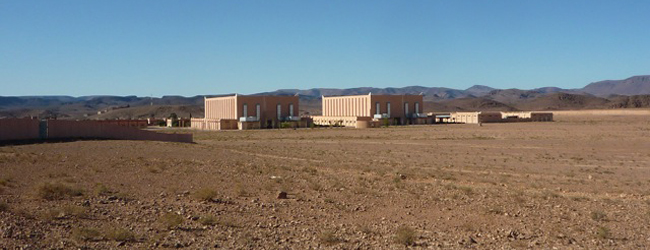
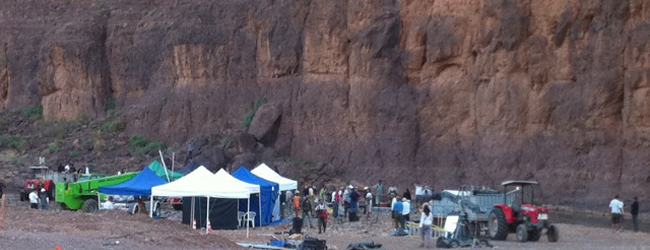
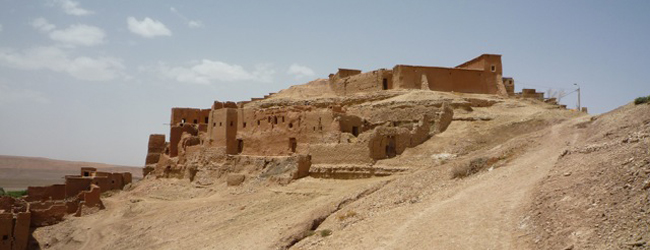

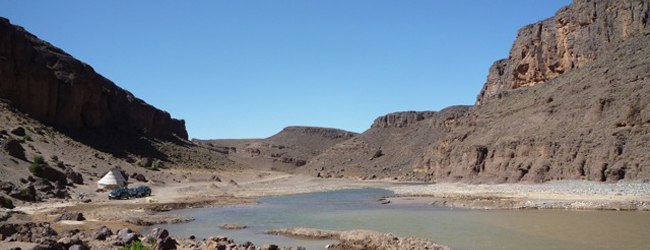
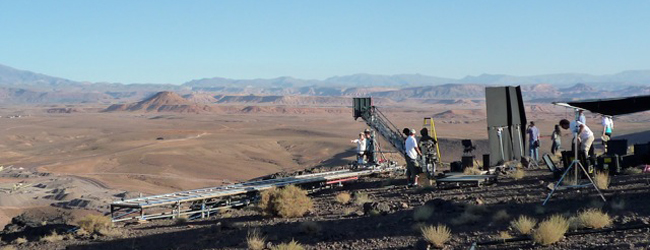

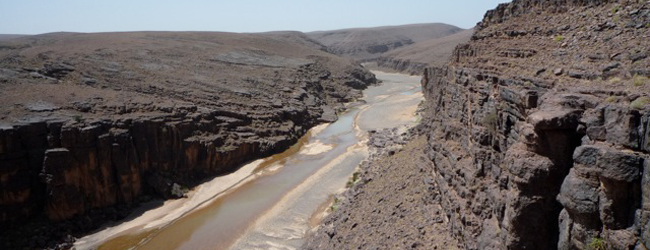

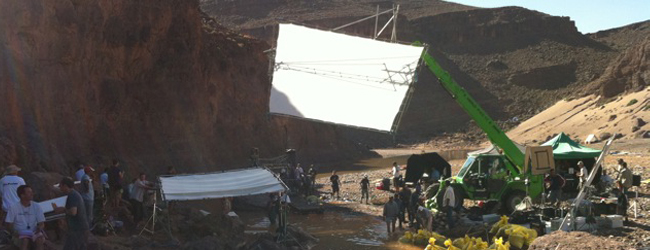
There are 2 comments
Clara Le
| #
Great piece!
Reply
Abdessamad Idrissi
| #
Thanks for sharing your story; I originally came from Ouarzazate.
I agree with the fact that If you are looking to double anywhere in the Middle East, Morocco in general is the place to be.
One thing is still to be fixed is the lack of equipment when it comes to cameras and new gear..
Hopefully someday, the big guys, like Arri, Panavision.. Will open a store there in Morocco so we have not to worry about transport and import of equipment..
Reply